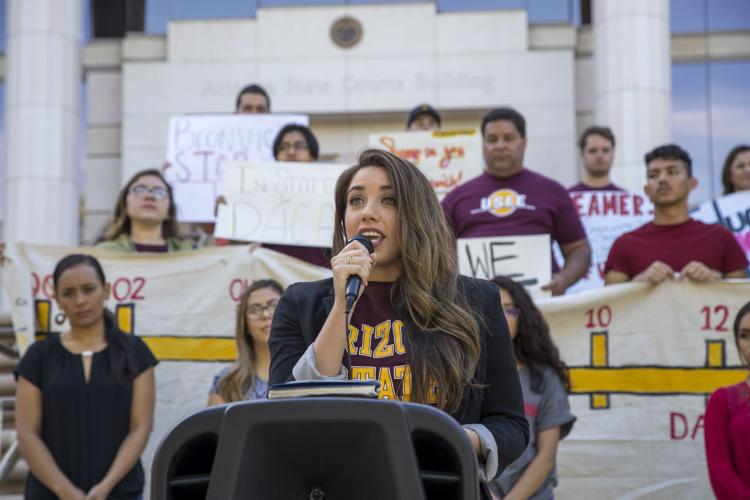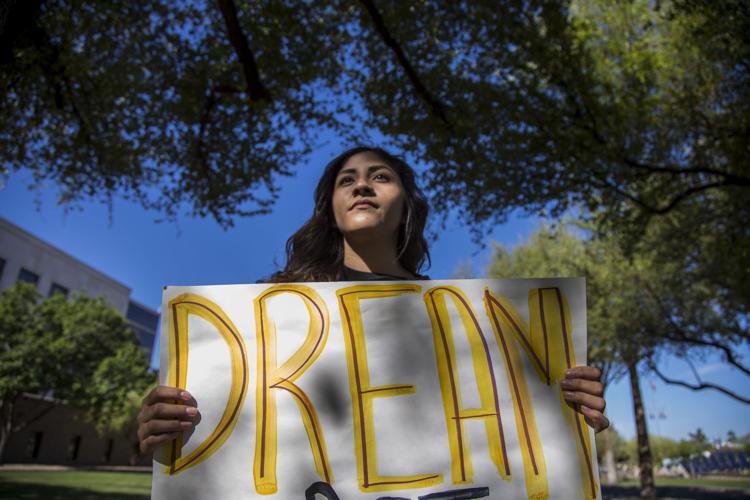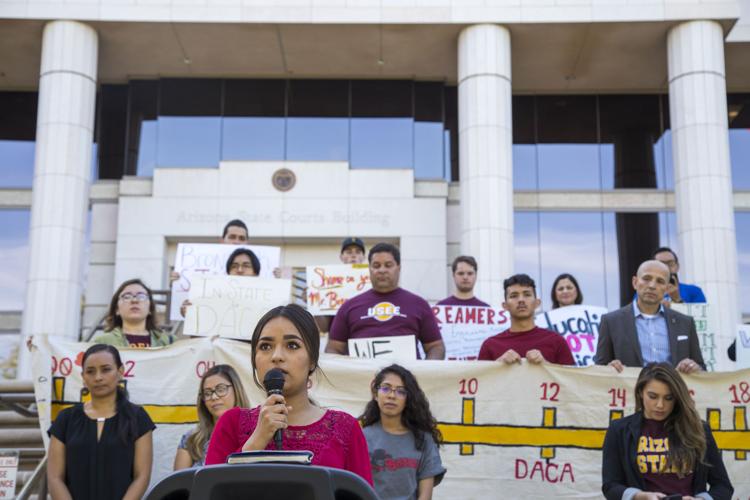PHOENIX — A claim that “dreamers” are entitled to the same lower tuition as other Arizona residents drew a skeptical response Monday by several justices of the state Supreme Court.
Attorney Mary O’Grady, who represents the Maricopa community colleges, argued that students in the Deferred Action for Childhood Arrivals program have the federal government’s “authorization” to be in this country.
“They may live here, they may work here, they go to school here,” she told the high court. “Through DACA, the federal government has authorized these students to continue their productive lives here in this country.”
But the justices said it’s nowhere near as clear as O’Grady suggests.
What is clear is that the Obama administration in 2012 said those who had arrived as children and met other qualifications could remain. They also were issued Employment Authorization Documents.’
But Justice Clint Bolick said it’s not that simple.
“As I understand it, Congress has exclusive authority over immigration,” he said. And Bolick said even the Department of Homeland Security has taken the position that “it cannot and has not provided a legal status to the DACA students.”
What’s missing, he said, is express congressional authorization.
O’Grady countered that federal law has defined “lawful presence.” And she said that federal law does give the administration the power to decide who can stay without fear of deportation.
“We acknowledge that they don’t have the formal immigration status that is referred to in the (federal government’s) DACA memo,” O’Grady conceded. “But Congress has acknowledged and courts have acknowledged the executive’s authority under immigration law to give deferred action, to let people remain here, to give them the authority to work here.”
That question of the breadth of that executive authority — and the absence of congressional action — could ultimately determine how much thousands of students pay for higher education.
That includes not only those at the Maricopa colleges but also other community college systems in Arizona as well as the state university system that also offers in-state tuition to DACA recipients who meet other residency requirements.
A 2006 voter-approved law spells out that any person who is not a U.S. citizen or “legal resident” or is “without lawful immigration status” is ineligible to be charged the same tuition at state colleges and universities available to residents.
When the Governing Board of the Maricopa colleges concluded the DACA status qualified students for in-state tuition, Tom Horne, then the attorney general, filed suit.
A trial judge sided with the colleges, concluding those in the program were here with the blessing of the federal government. The Arizona Board of Regents then implemented a similar policy for the state’s three universities.
But the Court of Appeals ruled otherwise, sending the case, now being pursued by Attorney General Mark Brnovich, to the state’s high court.
During Monday’s hearing, Bolick clearly had problems with O’Grady’s contention that the government’s decision to let the dreamers stay amounts to lawful presence.
For example, he said a police officer might see him driving over the speed limit but decide not to write him a ticket. Bolick said that decision not to pursue legal action did not make his driving legal.
It’s not just state law that O’Grady is fighting.
There also is language in federal immigration law that says states have to act affirmatively to grant benefits like in-state tuition for those not here legally. Appellate Judge Philip Espinosa, sitting in on Monday’s arguments, said there has been no such action by the Legislature.
O’Grady, however, told the justices that doesn’t end the matter.
“It’s not always the Legislature making a decision on tuition,” she said, saying “other bodies” are entitled to make such decisions, like the Maricopa colleges board.
But Assistant Attorney General Rusty Crandell said the 2006 ballot measure could be seen as the state acting absolutely in the reverse, specifically rejecting the idea of resident tuition for dreamers.
The justices gave no indication when they will rule.
All this could become legally moot if the Trump administration is successful in its efforts to rescind DACA.
So far, though, that move has been blocked by a federal court, with the U.S. Supreme Court not interested in interceding, at least not yet.
“If DACA no longer exists and people are still here, they’re no longer lawfully present, no longer eligible for resident tuition,” O’Grady acknowledged.
There is some possibility that the court, even if it voids resident tuition for DACA recipients, could give them some temporary relief.
The justices were interested in knowing whether the Maricopa colleges had set tuition yet for the coming year.
That could indicate that they would make any decision denying in-state tuition only applicable when future tuition rates are set.






